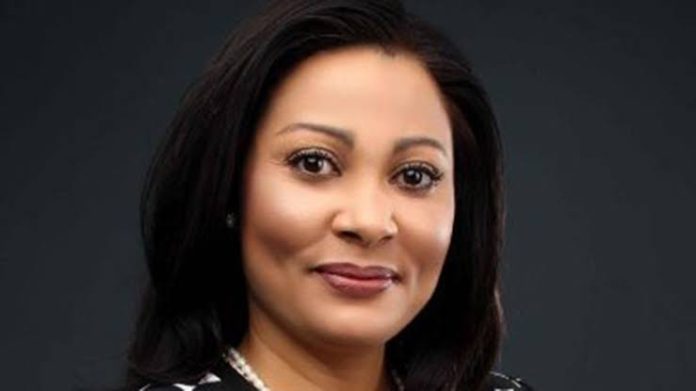News Investigators/ Nigeria is building a tax administration that will be effective in revenue mobilisation and also responsive to challenges faced by tax payers.
The Minister of State for Finance, Doris Uzoka-Anite said this on Tuesday in Abuja, at the TaxADR Roundtable, with the theme “unlocking Revenue and Strengthening Dispute Resolution: A Roadmap to Tax ADR in Nigeria”.
The minister was representing by Mrs Ndidi Chineyolum, a director in the ministry.
According to her, Nigerians are living in a time when the imperatives of economic reform, inclusive growth and sustainable public finance demand more innovative and operative approach.
She said that collaboration in the resolution of tax disputes captured the essence of what is required to build an efficient tax administration.
“It speaks directly to the fundamental values that underpin a modern progressive tax system, mutual trust between taxpayers and the authority, procedural fairness in enforcement and administrative efficacy in resolving disputes.
“More than just a slogan, this theme challenges us to reflect on how we can bridge the gap in understanding, reduce adversarial interactions and foster a culture of dialogue and accountability.
“It underscores the need for us all, especially the government, and other stakeholders to create a system where disputes are resolved not through prolonged confrontation, but through seizing and raising a timely consensus,” she said.
The minister said that as a nation striving to broaden its non-oil revenue base, tax compliance remained both a strategic priority and an existing challenge.
“With the global shift away from commodity dependence, Nigeria must strengthen its domestic revenue capacity to sustain national development.
“Over the past decade, the landscape of tax disputes has become increasingly complex, both in volume and in nature of issues arising from a growing business model and regulatory framework.
“The adversarial nature of traditional litigation often results in prolonged resolution timings, escalating legal expenses and strained relationships between taxpayers and revenue authorities,” she said.
She said that the situation not only delayed revenue collection, but also brought in a climate of uncertainty and tension within the tax equity play.
“Such friction undermines more than just revenue modernisation.
“It weakens investor confidence, erodes public trust, disrupts the foundation of a stable and predictable fiscal environment ” she said.
The Attorney-General and Minister of Justice, Lateef Fagbemi, said that it was imperative for Nigeria, like any other country to expand its revenue base through taxation.
Mr Fagbegbi, who was represented by Oloyede Hussein, Special Adviser to the President on Arbitration, Drafting and Resolution, said it was important to enhance compliance and build public trust in the country’s tax systems.
“But we must not do so through coercion or confrontation, but by fostering a tax culture rooted in fairness, dialogue and accountability.
“This is where the Alternative Dispute Resolution (ADR) comes in.
“In international context, ADR has long been recognised for its efficiency, cost-effectiveness and ability to preserve relationships. These are the very values we must infuse into our tax system,” he said.
He urged taxpayers to always expect these arguments to arise, they can explore dialogue and a commitment to resolution over conflict.
“This roundtable offers us an opportunity to learn from the international best practices,” he said.Lateef Yusuff, the Founder and Convener of the TaxADR roundtable said that the gathering brought together stakeholders from across governments, the private sector, academia and the international community.
Mr Yusuff said that the purpose was to consider how best to embed ADR into Nigeria’s tax landscape.
“This roundtable is especially timely, coming on the heels of several landmark developments ” he said.
He cited the recent reform of Nigeria’s tax legislation, the enactment of the Arbitration and Mediation Act and the National ADR policy as instances of such landmark developments.
“Together these developments provide a strong legal and policy foundation for the integration of ADR into Nigeria’s tax system, ” he said.
Anita Erinne, the Coordinating Secretary. Tax Appeal Tribunal, expressed the readiness of the committee to improving access to justice in tax disputes.
Delivering a keynote address on new tax reforms and the role of ADR, Erinne said that tax disputes affected the bottom line of government, and also the livelihoods of citizens and the fortunes of businesses.
“We will encourage collaborative tax administration. We will now contribute a great deal to the rule of law, economic stability and national development.
“I also recognise the fundamental role of the Federal Inland Revenue Service (FIRS) in championing a more responsive and modern tax system.
“The FIRS has shown willingness to engage in reforms, and I commend the Executive Chairman, Dr Zacch Adedeji, for sharing this vision and supporting the implementations of tax ADR in Nigeria,” she said.
Mrs Erinne said that Nigeria was undergoing a digital transformation of its tax system.
According to her, the tax rate is currently at about 13 per cent.
“A tax system is built on both taxation and collaborative action, flexibilities in efficiency and public responsibility,” she said.
NAN


